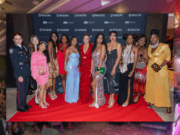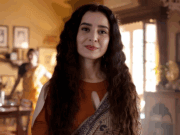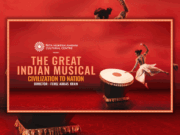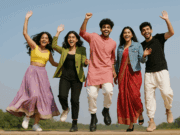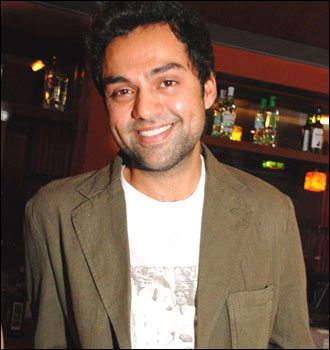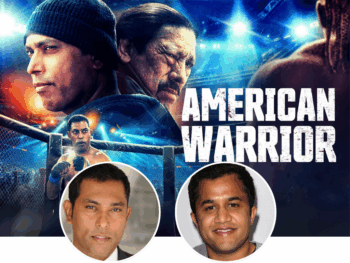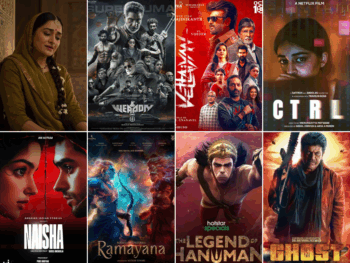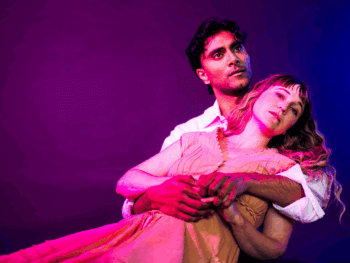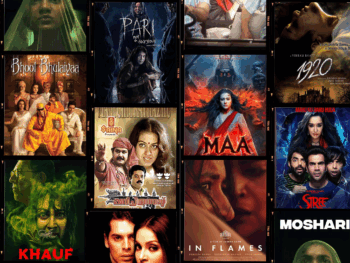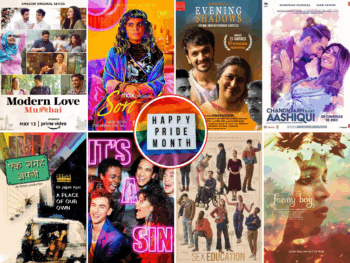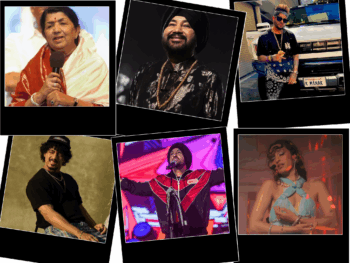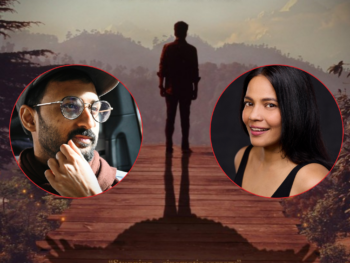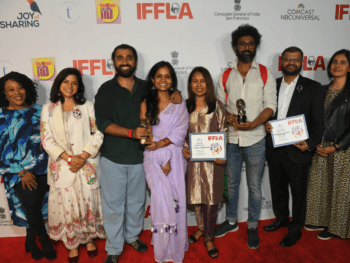Sana Tahir: Welcome to Toronto! Is this your first time?
Abhay Dheol: No it's my third time.
ST: And what brings you to Toronto?
AD: Well I'm here for Masala! Mehndi! Masti! The triple M Festival.
ST: Tell me about your involvement in the Triple M Fest.
AD: Well [the organizers] called me and said "We are going to present you with a citation" and I told them I have no parking tickets in Toronto and they said "It's certificated by an MP or the mayor or the city of Toronto and we want to have a retrospective of your films." I told them I am not retired yet and they said "Well no, we should only celebrate your films," so it was interesting. I was really humbled. I thought "Wow, they're actually going to have a retrospective so-to-speak of my work not because I'm retiring but just because I've done eclectic work" and it was a great opportunity to showcase some of the films that I've done earlier on. There's a lot of offbeat stuff that I've done which people haven't seen. Also the ideology of the festival is great, it's something that celebrates the arts, it's not a money-making thing at all and it's about bringing the community together, promoting new talent. It was really an honour getting here and that they called me.
ST: I do want to congratulate you on your success of Zindagi Na Mile Gi Dobara. And I want to know what the three of you actually did on those sets since Katrina and Kalki were the only female actors there. Katrina was mostly alone with you guys, I sort of feel bad for her.
AD: No don't feel bad for her, feel bad for us. We had to entertain her, not that we did but… [Laughs]
ST: What would you say was a memorable moment?
AD: There were quite a few. It was 3 months in Spain so we travelled a lot and it's a beautiful country. Some of the obvious ones were jumping off a plane; I mean who gets to do that? Going deep-sea diving and I remember within two days, I jumped off a plane and then went deep-sea diving form one height up in the sky to the depths of the sea. You have to give it sometime you can't go straight under water that deep after you skydive cause you get bubbles in your blood or something like that… but the adventure sports were memorable, and overall just the experience of having worked for 3 months together as a team and meeting new people, seeing the countryside. It was one of the best shoots I've ever had, actually the best shoot I've had so far.
ST: You're a fan of not-so-commercial cinema as we'd put it. You've had Dev. D as well as Oye Lucky! Lucky Oye! And you've progressed with that and people have appreciated you in those roles. Are you going to continue to streamline away from the main commercial cinema or would you like to have a balance of both? What is your personal interest?
AD: I think a balance is important and I've always tried to have that balance within the films I do. I think Zindagi [Na Mile Gi Dobarai] is probably the best example to give because it is a huge commercial success. But Zindagi is also not an unconventional Bollywood film either, and I think that's just been my aim all throughout. Even Dev. D. for that matter, it's like old wine in a new bottle. Devdas has been made into Bollywood films I don't know how many times now. There are three big ones we can think of and then there are ten other smaller ones. That was again a matter of striking that balance…Its about keeping the individual integrity intact without compromising it but at the same time, keeping it entertaining enough for a larger audience to come and see and that will always be my approach to film.
For example I have Shanghai with Dibakar Banerjee coming up next which is completely the polar opposite of Zindagi in the sense that the subject matter and the approach in the way its shot [are different] but it's the same thing as Zindagi that it's original and its got a director that has got a very strong vision behind it. It's completely different genres and so it's important for me to keep jumping from one genre to another just so I can keep people guessing as to what the next film will be like.
ST: Well from the jumping to the genres, a lot of your senior colleagues have jumped onto Hollywood. What are your thoughts on that? If an opportunity arises, would you do a Hollywood film? What type of a Hollywood film would you like to do and who would you like to work with?
AD: Who's jumping into Hollywood? [Laughs]
ST: [Laughs] Like I said, senior colleagues.
AD: The thing for me, I would love to work around the world. I speak Hindi, I speak English and I speak a bit of Spanish and to be very honest, I would explore films in all these three languages. For me it's important that I like the director and I like the script. I don't think I could drop bag and baggage and leave my country to pursue work in another country. But I would be the type to sort of give it a chance for sure. If the opportunity comes knocking my way, I would be a fool not to take it. And even if the opportunity doesn't come, I would go out there and seek it as long as I don't compromise what I have back at home cause I'm really happy where I'm at and I'll always be a part of Hindi cinema- maybe not Bollywood- but I am an Indian actor and that's always going to be my primary focus.
But there are directors that I'd love to work with and ironically there are some Mexican directors I really like, Pedro Almodovar, Alfonso Cuaron, Kris Daroquiz. Then English directors Sam Mendes or Stanley Kubrick. Stanley Kubrick I would have chased if he was still alive. But I really like the independent spirit that American films have. You have your Hollywood stuff of course, but you still have your thoughts along making some interesting stuff. I watch cinema from around the world, and non-formula cinema within our industry attracts me as well. I get attracted to the cool key old directors like Agatigi Gillian or Emir Kusturica who I know is Serbian and I can't speak the language [Laughs]. There's a lot of vision that people have out there. I see some of the greatest films…there is a lot of emotions though in Irani films. You know you can't match the kind of stuff they do with so much simplicity and so much soul.
ST: Well answered! One last question: What is the typical day in the life of the actor Abhay Deol and the non-actor Abhay Deol?
AD: A typical day in the life of my "actor" self is to wake up at six in the morning. If I'm good, I'll wake up at six in the morning, go to the gym and be ready by seven to leave for the set. But it'll almost always be me waking up around a quarter to seven in the morning because it takes me fifteen minutes to leave. Then I'll work till seven in the evening, come back and sleep by nine, then go back the next day. That's the actor self.
My typical self is basically to wake up at eleven or twelve in the morning or afternoon. I have chai in the morning usually, then I drink ABC, Apple Beetroot Carrot juice, then I'd go to the gym, I'll also see if there is a Family Guy episode that's been pre-recorded on my set top box. Then I would go to the gym, come back, shower, have lunch, and then really do almost nothing till the evening. By evening maybe go visit a friend and come back home and sleep by twelve, even one o'clock [Laughs].
ST: No parties, no bowling, movies?
AD: On a typical day no partying. Maybe a movie, but even that not so much. I don't go out much…especially if I'm in Bombay I don't go out that much.
ST: Would you call yourself a family person? Or you like a balance of your independence and family?
AD: I think balance. I've always tried to strive for balance, I don't think I am necessarily balanced but I always strive to achieve that.
ST: Thank you so much for your time
AD: Thank you.
Sources:.masalamehndimasti.com, facebook, and IMDb.com
Sana Tahir
Author
After graduating from university, Sana Tahir entered the competitive world of advertising and sales, working for the likes of Zenith Optimedia in Dubai and Toronto before she began her tenureship at ANOKHI in the sales department as an account executive. Having successfully brought numerous region...





